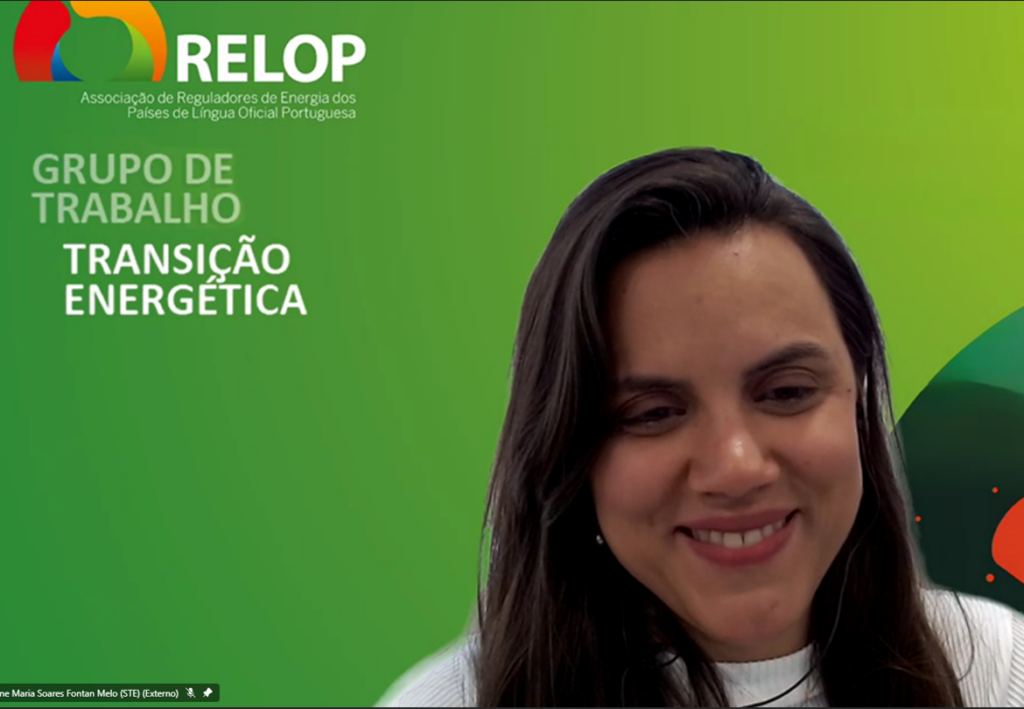RELOP promotes workshop on ‘Agenda 2030 and SDG 7 – Clean and Affordable Energy’
International experiences focusing on the 2030 Agenda and SDG 7 – Clean and Affordable Energy and energy poverty were presented
On June 20, the working group of the Association of Energy Regulators of Portuguese-Speaking Countries (Relop) held a virtual workshop on Agenda 2030 and SDG 7 – Clean and Affordable Energy. The Association’s members are energy regulators from Angola, Brazil, Cape Verde, Portugal, Mozambique and São Tomé and Príncipe.
The coordinator of the Energy Transition Working Group (GTE), Djane Melo, opened the event. In her speech, Djane emphasized the importance of the energy transition for the social development of the countries and encouraged interaction between the participants, promoting discussions on access to energy and new technologies.”
During the workshop, the head of the Water and Energy Unit of the Natural Resources Division of the Economic Commission for Latin America and the Caribbean (ECLAC), Rayen Quiroga, spoke about access to sustainable and modern electricity, the energy transition as a vector for transforming regional development and progress towards the 2030 Agenda. She pointed out that Brazil stands out in Latin America in the use of renewable energies and the need to strengthen public policies to promote the energy transition.
The director of the Department of Universalization and Social Policies for Electricity at the Ministry of Mines and Energy, André Dias, then presented some of the public policies carried out in the country that contribute to the fulfillment of SDG 7. Among the public policies developed in Brazil to combat energy poverty, the programs Luz para todos (Light for All), created in 2003 to promote universal access to electricity and combat energy poverty, and Tarifa Social de Energia Elétrica (Social Electricity Tariff), which addresses consumers’ ability to pay through discounts for low-income families, were highlighted.
At the end of the workshop, there was a presentation by the Portuguese entities: the Entidade Reguladora para o Setor Energético E.P.E (ENSE), represented by Emanuel Delgado, and the Entidade Reguladora dos Serviços Energéticos (ERSE), represented by Miguel Alves. During their presentations, they discussed the challenges faced and the measures adopted to combat energy poverty. They also explained how the social tariff works in the country, benefiting the most vulnerable families economically.
Agenda 2030 and the electricity sector in Latin America and the Caribbean
The 2030 Agenda established 17 goals, 169 targets and 231 global indicators to monitor progress. Brazil is one of the signatory countries of the 2030 Agenda and ANEEL has created the ‘ANEEL SDG 7 Project’ to develop solutions for the issue.
ECLAC is monitoring and analyzing the implementation of the SDGs of the 2030 Agenda for Sustainable Development in Latin American and Caribbean countries. The Commission carried out a survey and found that 16 million people still don’t have access to electricity.
According to ECLAC data, 69% of the energy matrix in Latin American and Caribbean countries is made up of non-renewable sources and only 31% of renewable sources.
RELOP’s role in shaping regulatory policies
The Association of Energy Regulators of Portuguese-Speaking Countries is an international organization focused on promoting professional training and knowledge sharing among experts and professionals from member entities.
The Association’s objective is to promote cooperation and the sharing of experiences, inspiration and innovation with the aim of guaranteeing the protection of present and future consumers through a robust regulatory policy, integrating the entire Lusophone community on the basis of the Portuguese language.


